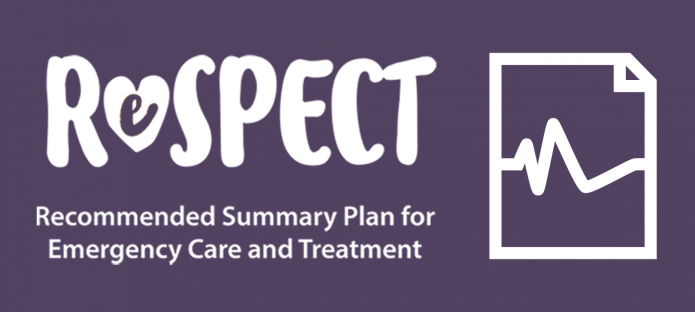We welcome the publication online on 19 January of the findings of a qualitative observational study of ReSPECT conversations in six NHS Trusts.
The paper, ‘Why, when and how do secondary-care clinicians have emergency care and treatment planning conversations? Qualitative findings from the ReSPECT Evaluation Study’, published online in Resuscitation on 19 January 2020, involved a small number of early adopter sites.
The conversations that were observed took place in 2017 and 2020, early in the organisations’ adopter journey. The organisations involved in the research were using the earlier version of the ReSPECT form that was current at the time. The research team saw that there were a range of themes or drivers for ReSPECT conversations in practice and the conversations themselves were varied.
ReSPECT is now widely used by health and social care organisations across England and in some parts of Scotland to support healthcare professionals and patients having important conversations in advance about their realistic emergency care choices, including whether cardiopulmonary resuscitation (CPR) should be attempted in a future emergency.
The process aims to develop a shared understanding between the healthcare professional and the patient of their condition, the outcomes the patient values and those they fear and then how treatments and interventions, such as cardiopulmonary resuscitation (CPR) fit into this. It supports the important principle of personalised care.
We agree with the authors’ comments that “Improving clinicians’ understanding and valuing of ReSPECT’s aims is key to the ongoing implementation of ReSPECT.”
We appreciate it takes time to see a change in culture and practice within health and social care organisations adopting the ReSPECT process. And we are committed to helping and supporting health and social care organisations adopting the process, to enable clinicians to have the skills and confidence to approach ReSPECT conversations in the best way for patients. We want to support conversations with patients/their legal proxy or family taking place that are sensitive, person-centred and glean what matters to the patient.
In September 2020, we introduced an updated version of the ReSPECT form that is more patient-centred than previous versions and contains more prompts for explicit clinical reasoning, based on feedback from professionals, patients and their families. Since the introduction of the ReSPECT process we have had a range of materials available for healthcare professionals and patients/families, and we use feedback to continually improve them. We hold regular webinars and teleconferences with adopter leads and support and monitor adoption across health and social care organisations. We also have audit tools available and sites who adopt ReSPECT need to commit to auditing its use.
We understand that consistency in the way a process such as ReSPECT is used in clinical practice is important to ensuring it is used in a person-centred way to guide and document conversations with patients and to support informed decision-making.
Regulatory health and social care bodies have an important part to play in helping to achieve this. We hope they will provide clear recommendations to ensure that patients and their families experience consistent, high quality, person-centred discussions and decision making around this complex area, wherever they live across the UK.
